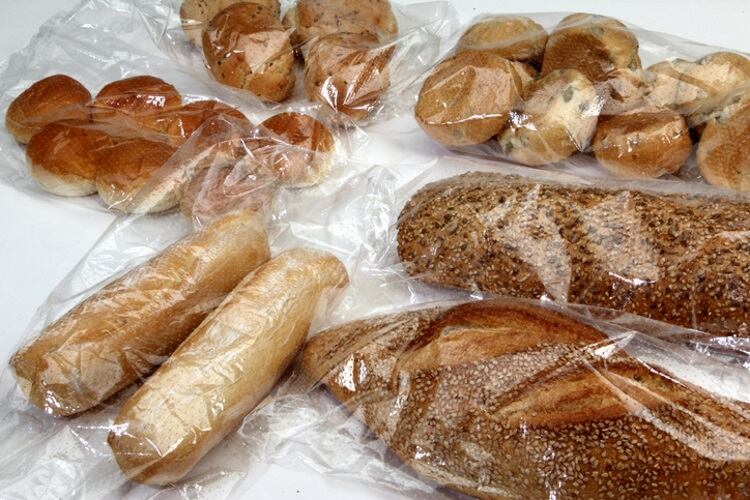Protecting the Best of British
The UK’s iconic Cornish pasties is just one of a swathe of ‘Best of British’ products to have received the golden seal of guaranteed authenticity and origin, and protection from imitations.
Other examples of GI-status products include treats like Melton Mowbray pork pies, Stilton cheese, Irish Poteen and Arbroath smokies, while elsewhere in the EU, products like Baklava (Turkey), Roquefort and champagne (France) and Napoletana pizza (Italy) enjoy the same status. There has also been a move in 2018 by the National Confederation of French Bakers – supported by President Emmanuel Macron – to add the baguette to UNESCO’s Intangible Cultural Heritage List.
The UK is issuing three GI logos – developed in conjunction with GI producers, Devolved Administrations and consumers – which mark each designation of geographical indication:
- Protected Designations of Origin (PDO): which requires all aspects of production, including sourcing materials, to take place within the defined geographical area.
- Protected Geographical Indications (PGI): means that some elements of production and/or raw materials can take place outside the defined geographical area.
- Traditional Speciality Guaranteed (TSG): products made to a traditional recipe or method but it does not have to be made in a specific area.
Certified products are given the right to display the logo, meaning shoppers are guaranteed of purchasing the ‘Best of British’ and producers will benefit from intellectual property protection.
GIs are highly valued by producers, which represent around a quarter of UK food and drink exports by value, approaching £6bn in export value in 2019.
“The new UK protected food name scheme will replace the old EU one and will ensure that we continue to recognise and celebrate protected food names and local recipes across our country,” said UK Environmental Secretary George Eustice.
“The new logos will become a staple on supermarket aisles in the UK and mean shoppers will be able to pick the best of British, from Scotch whisky and Welsh lamb to Cornish clotted cream.”
With Brexit coming to an end, the UK is setting up its own geographical indication (GI) schemes to fulfil its World Trade Organisation (WTO) obligations.
Producers of products with EU-recognised GI-status will have until 1 January 2024 to change packaging to display the new UK GI logos, a timeframe approved by producers that were consulted extensively on the scheme.
The UK Government is also working to expand and increase the number of GI protections through Free Trade Agreements. The recently announced UK-Japan Comprehensive Economic Partnership Agreement, for example, will increase GIs from seven to potentially over 70, improving the recognition of iconic UK brands in the Japanese market.
“In a world of cheap imitations and pressures on costs, it’s important for producers and consumers alike to be able to depend on a marque which is a guarantee of authenticity and quality,” said Halen Mon, product development officer at Anglesey Sea Salt.
Protecting people with food allergies
Meanwhile, only 20% of food-to-go producers say they are completely prepared for Natasha’s Law, set to come into effect next October.
According to a recent report from business technology solutions provider Brother UK, just one in five UK businesses say they are completely prepared to meet the requirements of the incoming law.
This lowers to only one in 10 (13%) for smaller businesses.
Almost half of the survey’s respondents (47%) reveal they don’t have adequate labelling solutions in place, with 32% still using handwritten labels.
Natasha’s Law – named after Natasha Ednan-Laperouse, who died in 2016 from anaphylactic shock from an undeclared ingredient on a Pret a Manger baguette – will enforce businesses to be fully transparent regarding all ingredients used in pre-packaged foods, with particular emphasis on allergens.
The Food Information (Amendment) (England) Regulations 2019 will come into force across England in October 2021.
The law has wholeheartedly been accepted, with 100% of businesses agreeing it will make people with food allergies feel safer buying Pre-Packed for Direct Sales (PPDS) foods and 99% noting customers will now find it easier to see the ingredients in packaged products.
“Natasha’s Law is going to transform food labelling for the better, and it’s encouraging to see that businesses are taking this seriously, with focused training and implementation already underway in many,” said Simon Brennan, senior end user client manager of Speciality Print Solutions at Brother.
However, 23% say they need more information to be able to fully implement the requirements.
“The consequences of not meeting the requirements are high, with possible fines, reputational damage and risk to customer safety, so it’s vital food retailers have appropriate solutions and processes in place as soon as possible.”
Working with experts from NT Assure, Nutritics and Labelling Solutions, Brother has created an in-depth guide to help businesses get up to speed with the new legislation. Download a free copy here.





